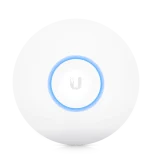New Jersey churches face unique challenges when upgrading network infrastructure. Moreover, state and local regulations govern everything from building modifications to electrical work. Understanding these requirements ensures your church network installation proceeds smoothly while maintaining full compliance.
Additionally, NJ church networking projects must balance technical performance with regulatory adherence. UniFi solutions provide the reliability churches need for worship services, live streaming, and community engagement—all while meeting New Jersey’s strict facility standards.
Understanding New Jersey Church Facility Regulations
New Jersey maintains comprehensive building codes that apply to religious facilities. These regulations protect occupants and ensure structural integrity. Furthermore, church network installations must comply with multiple regulatory frameworks.
State Building Codes and Religious Facilities
The New Jersey Uniform Construction Code (NJUCC) governs all building work in the state. This includes network infrastructure installations that involve structural modifications, electrical work, or fire safety systems.
Importantly, churches fall under Assembly Group A-3 occupancy classification. This designation carries specific requirements for life safety systems, emergency egress, and accessibility. Consequently, network installations must not compromise these safety features.
Any work that involves opening walls, running new conduit, or modifying electrical systems typically requires permits. Even low-voltage network cabling may need approval if it affects fire-rated assemblies or penetrates fire barriers.
Local Municipal Requirements
Beyond state codes, New Jersey’s 565 municipalities may impose additional requirements. Therefore, local construction officials interpret and enforce regulations within their jurisdictions.
Some municipalities require detailed plans for any electrical or low-voltage work. Others mandate licensed electricians for all cable installations. In fact, requirements vary significantly between towns like Newark, Jersey City, and smaller communities.
Religious facility compliance in New Jersey means understanding both state and local rules. As a result, professional installers familiar with your municipality prevent costly delays and compliance issues.
Historic Preservation Considerations
Many New Jersey churches occupy historic buildings. Over 1,800 properties appear on the New Jersey Register of Historic Places. Subsequently, work on these structures faces additional scrutiny.
Historic preservation regulations limit visible modifications to building exteriors and significant interior features. Network equipment placement must preserve architectural character. Additionally, cable routing cannot damage historic materials or finishes.
Professional New Jersey church WiFi installations in historic buildings require creative solutions. Surface-mounted conduit may be prohibited. Therefore, wireless solutions minimize invasive modifications while delivering modern connectivity.
Electrical and Fire Safety Compliance
Network infrastructure intersects with electrical and fire safety systems. Moreover, New Jersey enforces strict standards in both areas.
Licensed Electrician Requirements
New Jersey requires licensed electricians for most electrical work. This includes Power over Ethernet (PoE) installations that deliver both data and electrical power to network devices.
The state recognizes several electrician license types. Business and Industrial (B) licenses cover commercial work including churches. However, Residential (A) licenses do not authorize work in religious facilities.
Professional NJ church networking installers work with properly licensed electricians. Consequently, this ensures compliance and protects your church from liability. Unlicensed electrical work voids insurance coverage and creates safety hazards.
Fire-Rated Cable Requirements
New Jersey enforces National Electrical Code (NEC) Article 800 for communications cabling. Plenum-rated cables are mandatory in spaces used for air circulation. Similarly, riser-rated cables are required for vertical runs between floors.
Churches with drop ceilings that serve as return air plenums must use CMP plenum cables. Standard CMR riser cables are insufficient and violate code. Therefore, using incorrect cable types creates fire hazards and compliance violations.
Fire barrier penetrations require proper firestopping. Any cable passing through fire-rated walls or floors must maintain the barrier’s fire rating. Consequently, approved firestop materials and installation methods are mandatory.
Emergency System Integration
New Jersey churches must maintain functional emergency communication systems. Network installations cannot interfere with fire alarms, emergency lighting, or exit signage.
Some churches integrate network-based emergency notification systems. These systems must meet specific reliability standards. Additionally, battery backup and redundant pathways ensure operation during power failures.
Why New Jersey Churches Choose UniFi Networks
UniFi solutions address the specific needs of New Jersey religious facilities while supporting compliance requirements.
Reliable Live Streaming Infrastructure
Live streaming has become essential for New Jersey churches. Services reach homebound members, traveling congregants, and online communities. Therefore, reliable network infrastructure ensures broadcasts never drop during worship.
Professional streaming requires substantial bandwidth. A single 1080p stream needs 5-8 Mbps of sustained upload capacity. Churches streaming to multiple platforms simultaneously need even more capacity.
New Jersey church WiFi systems must prioritize streaming traffic. UniFi’s Quality of Service (QoS) features ensure streaming equipment receives necessary bandwidth. As a result, other network activity doesn’t interfere with live broadcasts.
Facility-Wide Connectivity
Modern churches operate like small businesses. Staff need reliable connectivity in offices. Volunteers require network access in classrooms and fellowship halls. Additionally, visitors expect guest WiFi throughout facilities.
New Jersey churches often occupy multi-building campuses. Sanctuaries, education wings, fellowship halls, and administrative offices may span multiple structures. Therefore, unified network infrastructure connects all buildings seamlessly.
UniFi systems scale from single-building churches to sprawling campuses. Centralized management simplifies administration across multiple locations. Furthermore, a single dashboard controls network access, security policies, and performance monitoring.
Digital Signage and Display Systems
Digital signage enhances communication in New Jersey churches. Lobby displays show service times and upcoming events. Sanctuary screens present lyrics and sermon notes. Meanwhile, hallway monitors direct visitors to classrooms and meeting spaces.
These displays require reliable network connectivity. Content updates must sync across multiple screens simultaneously. Any network interruption leaves displays showing outdated information.
Religious facility compliance extends to display installations. Mounting systems must meet structural load requirements. Electrical connections need proper permitting. Consequently, professional installers ensure all aspects meet New Jersey standards.
Compliance-Focused Installation Practices
Professional NJ church networking installations follow proven methodologies that ensure regulatory compliance.
Pre-Installation Planning and Permitting
Successful projects begin with thorough planning. Site surveys assess your facility’s layout, construction type, and existing infrastructure. This information guides equipment selection and installation approach.
Permit requirements are determined based on planned work scope. Simple equipment installations may not require permits. However, projects involving electrical work, structural modifications, or fire barrier penetrations typically need approval.
Professional installers prepare permit applications and coordinate with local building departments. Therefore, this expertise prevents delays and ensures compliance from project start.
Proper Cable Installation Methods
New Jersey regulations govern cable installation methods. Cables must be properly supported at specified intervals. Bend radius requirements prevent cable damage. Additionally, separation from electrical wiring reduces interference.
Plenum spaces require special attention. Cables must not obstruct airflow or create fire hazards. Proper cable management maintains clean, organized installations that pass inspection.
Fire barrier penetrations receive approved firestopping materials. Documentation proves compliance with fire rating requirements. Consequently, this protects both building occupants and your church from liability.
Inspection and Documentation
Many New Jersey municipalities require inspections of network installations. Building officials verify compliance with electrical codes, fire safety requirements, and structural standards.
Professional installers coordinate inspection scheduling and address any concerns inspectors raise. Proper documentation includes cable certifications, equipment specifications, and as-built drawings.
This documentation proves compliance and aids future maintenance. It also demonstrates due diligence for insurance purposes and liability protection.
UniFi Components for New Jersey Churches
Selecting appropriate equipment ensures both performance and compliance.
Access Points for Worship Spaces
Church sanctuaries present unique wireless challenges. High ceilings, large open spaces, and varying occupancy levels affect network design. New Jersey church WiFi systems must deliver consistent coverage during both empty and full services.
UniFi offers access points optimized for different environments:
- UniFi 6 Long-Range: Ideal for large sanctuaries with high ceilings. Provides coverage up to 600 feet in open spaces.
- UniFi 6 In-Wall: Perfect for offices, classrooms, and fellowship halls. Mounts flush for minimal visual impact.
- UniFi 6 Enterprise: Handles high-density scenarios like full sanctuary services with hundreds of connected devices.
All models support WiFi 6 technology for improved capacity and performance. Therefore, this future-proofs your investment as device counts increase.
Switches and Power Distribution
UniFi switches provide both network connectivity and Power over Ethernet to access points and cameras. This eliminates separate power supplies for each device.
PoE installations must comply with New Jersey electrical codes. Professional installers ensure proper grounding, overcurrent protection, and load calculations. Additionally, licensed electricians handle connections to building electrical systems.
Switch placement considers both technical requirements and building codes. Equipment rooms need adequate ventilation and fire protection. Furthermore, accessibility for maintenance must not compromise security.
Security and Surveillance Integration
Many New Jersey churches add UniFi Protect cameras alongside network upgrades. Integrated systems use the same infrastructure for both connectivity and security.
Camera installations must comply with privacy regulations and building codes. Exterior cameras require weatherproof enclosures. Moreover, mounting systems must withstand New Jersey’s weather extremes without damaging building structures.
Regional Considerations for New Jersey Churches
Different regions of New Jersey present unique installation considerations.
Northern New Jersey Urban Areas
Churches in Newark, Jersey City, and Paterson often occupy older buildings with challenging infrastructure. Dense urban environments create WiFi interference from neighboring buildings.
Historic preservation requirements are common in these areas. Installation methods must preserve architectural features while delivering modern connectivity. Therefore, creative cable routing and discreet equipment placement become essential.
Central New Jersey Suburban Communities
Suburban churches in areas like Princeton, New Brunswick, and Edison typically have more flexibility for infrastructure upgrades. Newer buildings may include structured cabling systems that simplify network deployment.
These communities often have well-staffed building departments with specific requirements. Consequently, professional installers familiar with local practices ensure smooth permit approval and inspection processes.
Southern New Jersey and Shore Communities
Churches near the Jersey Shore face environmental challenges. Salt air accelerates corrosion of outdoor equipment. Humidity affects indoor installations. Therefore, equipment selection must account for these coastal conditions.
Shore communities experience seasonal population fluctuations. Network capacity must handle summer crowds when seasonal residents and visitors attend services.
Ongoing Compliance and Maintenance
Religious facility compliance is not a one-time achievement. Ongoing maintenance ensures continued adherence to regulations and optimal performance.
Regular inspections identify potential issues before they become problems. Firmware updates address security vulnerabilities and add new features. Additionally, documentation updates reflect any modifications or additions to network infrastructure.
Managed network services provide proactive monitoring and maintenance. Technicians track system health and address issues promptly. Therefore, this ensures your New Jersey church WiFi remains reliable for worship services and ministry activities.
Partner with New Jersey Network Experts
NJ church networking projects require specialized knowledge of both technology and regulations. The right partner makes the difference between smooth installations and costly compliance problems.
Professional installers understand New Jersey’s regulatory environment. They maintain relationships with local building departments. They work with licensed electricians and other trades as needed. Consequently, this expertise ensures your project meets all requirements while delivering reliable performance.
Ready to Upgrade Your Church Network with Full Compliance?
Contact UniFi Nerds for Your New Jersey Church Network Assessment
📞 Call: 833-469-6373 or 516-606-3774
💬 Text: 516-606-3774 or 772-200-2600
✉️ Email: hello@unifinerds.com
🌐 Visit: unifinerds.com
✓ Free Consultations • ✓ NJ Building Code Expertise • ✓ Licensed Electrician Partnerships • ✓ Historic Building Experience
The UniFi Nerds specialize in NJ church networking installations that meet all regulatory requirements. Our team understands New Jersey facility regulations and works throughout the state—from Bergen County to Cape May.
We handle every aspect of your project: site surveys, permit applications, professional installation, and inspection coordination. Our New Jersey church WiFi solutions deliver the reliability your ministry needs while ensuring full compliance with state and local codes.
Whether you’re upgrading an existing system, equipping a new facility, or adding live streaming capabilities, we can help. Our experience with religious facility compliance ensures your project proceeds smoothly from planning through final inspection.









